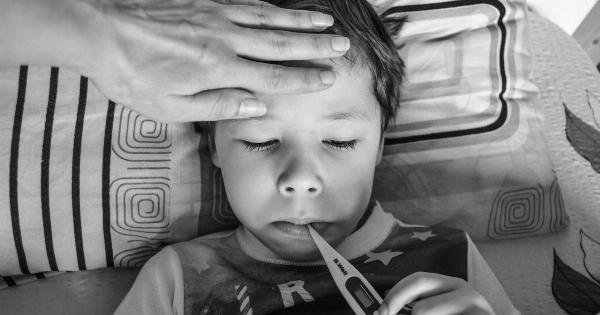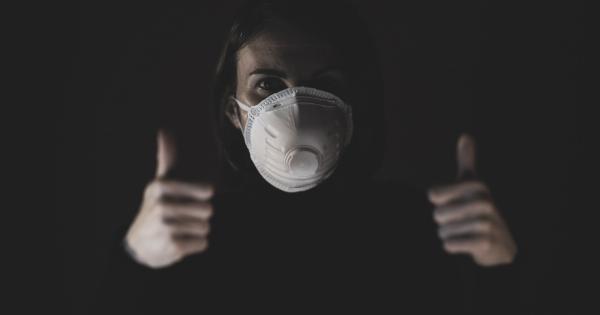When you’re not feeling well, whether it’s due to a mild cold or a more severe illness, deciding whether to stay home or go out can be a difficult choice.
On one hand, you may feel obligated to push through and continue with your daily activities, but on the other hand, staying home and resting may be the best decision for your health and the wellbeing of others. This article explores the question: Should you stay home when you’re not feeling well?.
Protecting Yourself and Others
One of the key reasons to stay home when you’re not feeling well is to protect both yourself and those around you. Illnesses, particularly those that are contagious, can spread rapidly in crowded environments, such as workplaces or schools.
By staying home, you reduce the risk of transmitting your illness to others, ultimately helping to prevent the spread of germs and viruses.
Preventing the Spread of Illness
When you go out while you’re sick, you expose yourself to a higher risk of infection and prolong the duration of your illness.
It’s important to remember that some illnesses can take a toll on your immune system, leaving you vulnerable to secondary infections or complications. Additionally, if your immune system is already compromised, such as in the case of chronic illnesses or elderly individuals, the consequences of not staying home can be even more severe.
Promoting a Speedy Recovery
Staying home when you’re not feeling well allows your body the time and rest it needs to recover. While it may be tempting to continue with your daily routine, doing so may prolong your illness or even lead to more severe symptoms.
By taking the time to rest, hydrate, and focus on your recovery, you are giving yourself the best chance to bounce back quicker and stronger.
The Importance of Self-Care
Staying home when you’re sick also provides you with an opportunity to prioritize self-care. Taking care of your physical and mental well-being is essential for overall health.
By staying home, you can engage in activities that help alleviate your symptoms, such as getting extra sleep, drinking herbal teas, or practicing relaxation techniques. Additionally, staying home allows you to avoid unnecessary stressors that could worsen your condition or delay your recovery.
The Impact on Productivity
Many individuals hesitate to stay home when they’re not feeling well due to concerns about their productivity.
While it’s understandable to want to meet work or personal obligations, pushing yourself to carry on when you’re sick can actually have the opposite effect. Working or going about your daily routines while ill can lead to decreased productivity, mistakes, and longer recovery times. Taking a day or two off to rest can ultimately result in higher productivity once you’re fully recovered.
Considerations for Healthcare Professionals
For healthcare professionals, the decision to stay home when feeling unwell is even more critical. Being in contact with vulnerable patients while sick can lead to dire consequences.
In addition to the risk of spreading infections, healthcare professionals need to ensure they are operating at their best capacity to provide the necessary care to their patients. Staying home when ill not only protects their own health but also the well-being and safety of their patients.
Consequences of Not Staying Home
Choosing not to stay home when you’re not feeling well can have significant consequences.
Apart from potentially worsening your own health and prolonging your recovery, you risk infecting others, including those who may be more susceptible to illnesses. This can create a chain reaction that leads to a larger outbreak or epidemic.
Additionally, if you continue to overexert yourself while unwell, you may delay your return to optimal health, resulting in a longer absence from work or other responsibilities in the long run.
Supportive Measures for Staying Home
It’s important to acknowledge that staying home when you’re not feeling well may not always be feasible for everyone. Some individuals may not have access to paid sick leave or may face job insecurity if they take time off.
To address these concerns, organizations and governments should strive to implement supportive measures that allow individuals to stay home when they’re unwell without fear of financial or job-related repercussions. By prioritizing the health and well-being of their employees, businesses can contribute to a healthier and more productive workforce.
Returning to Normal Activities
Once you start feeling better, it’s essential to wait until you’re fully recovered before returning to your normal activities. Rushing back too soon can result in relapses or setbacks, which may require additional time off in the long run.
It’s important to listen to your body and give yourself the necessary rest and care during the recovery phase.
Conclusion
When you’re not feeling well, staying home is often the best course of action.
By doing so, you protect yourself and others, prevent the spread of illness, promote a faster recovery, prioritize self-care, and ultimately contribute to a healthier community. While the decision to stay home can sometimes be challenging, it’s important to prioritize your health and the wellbeing of those around you.






























